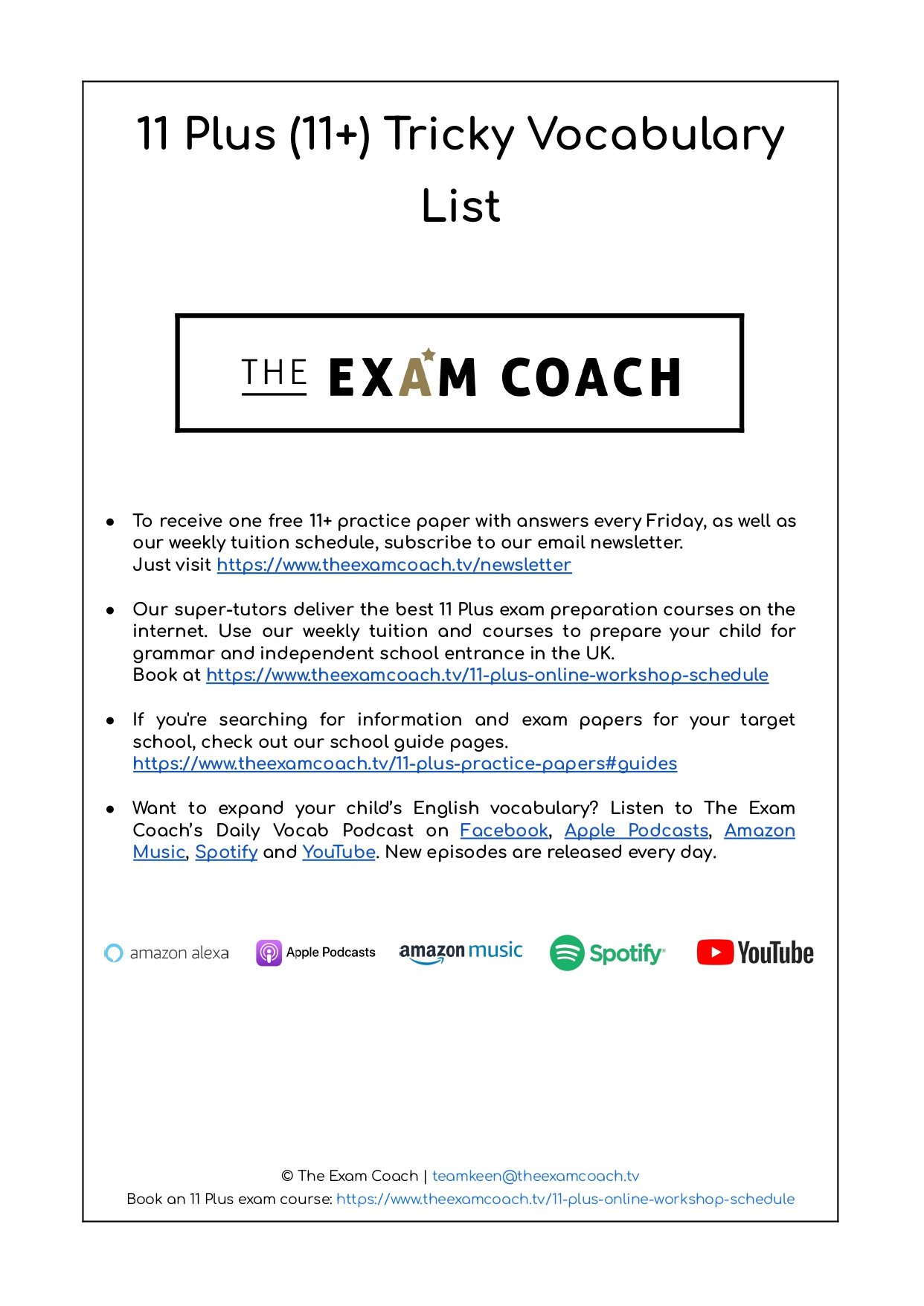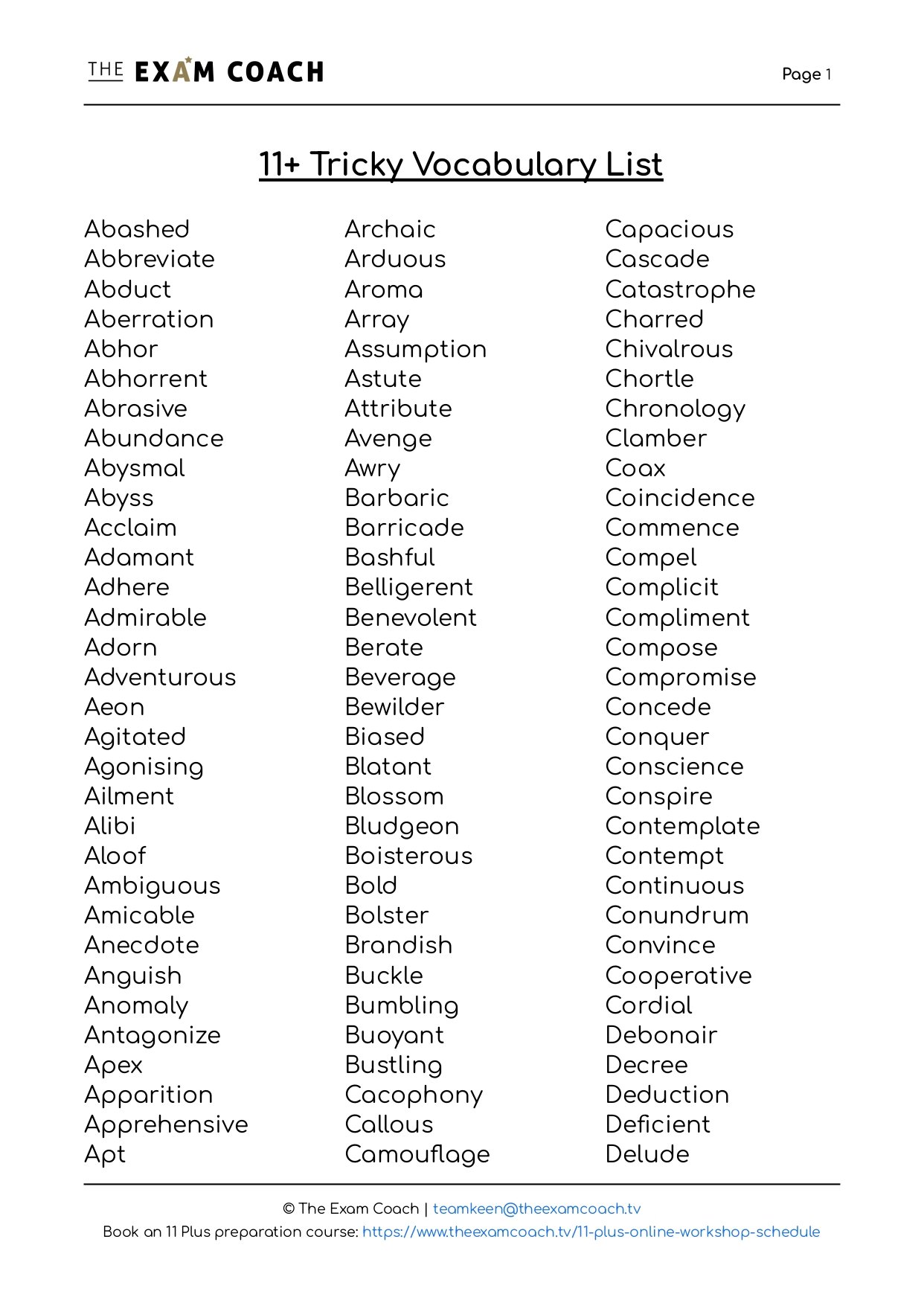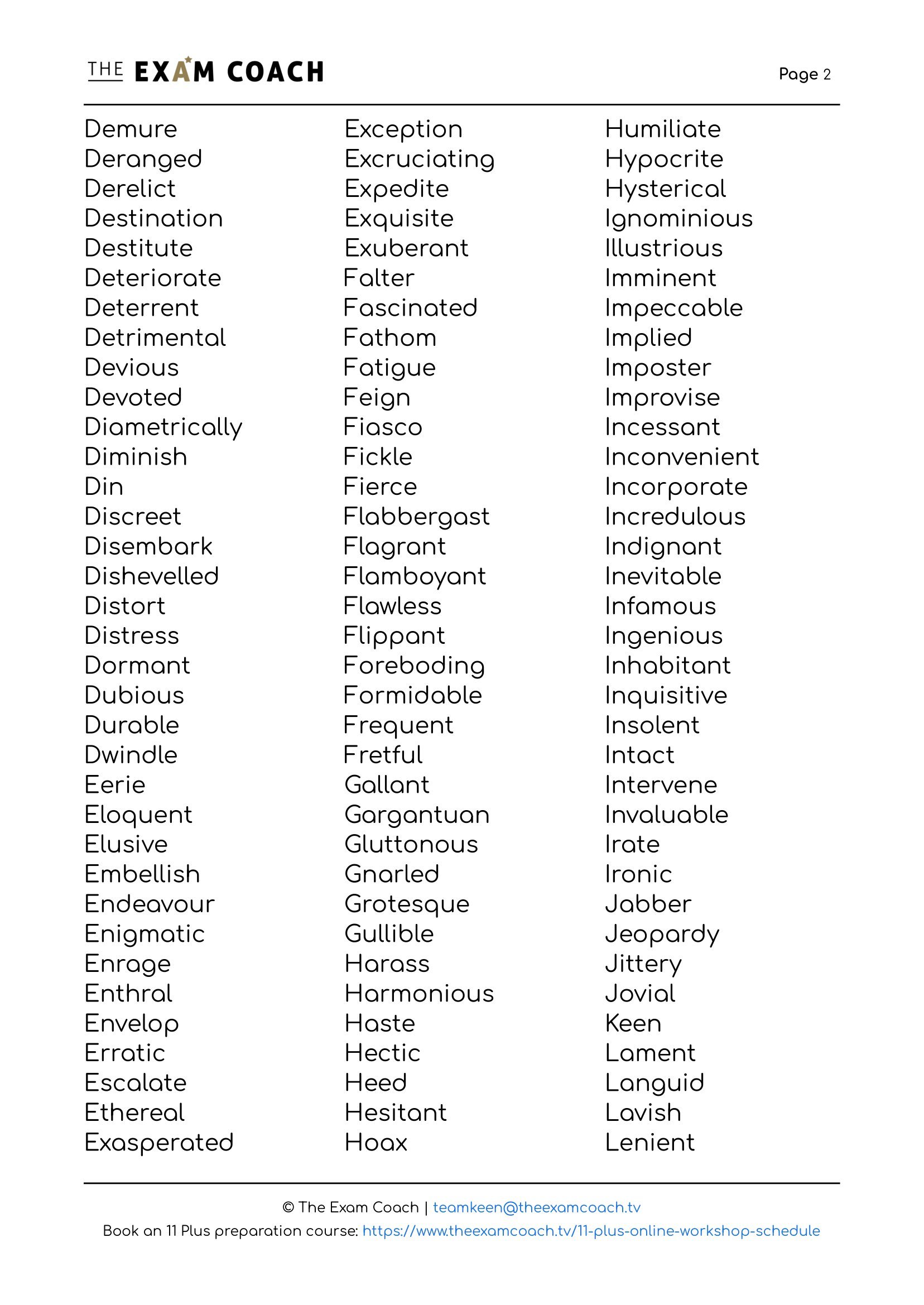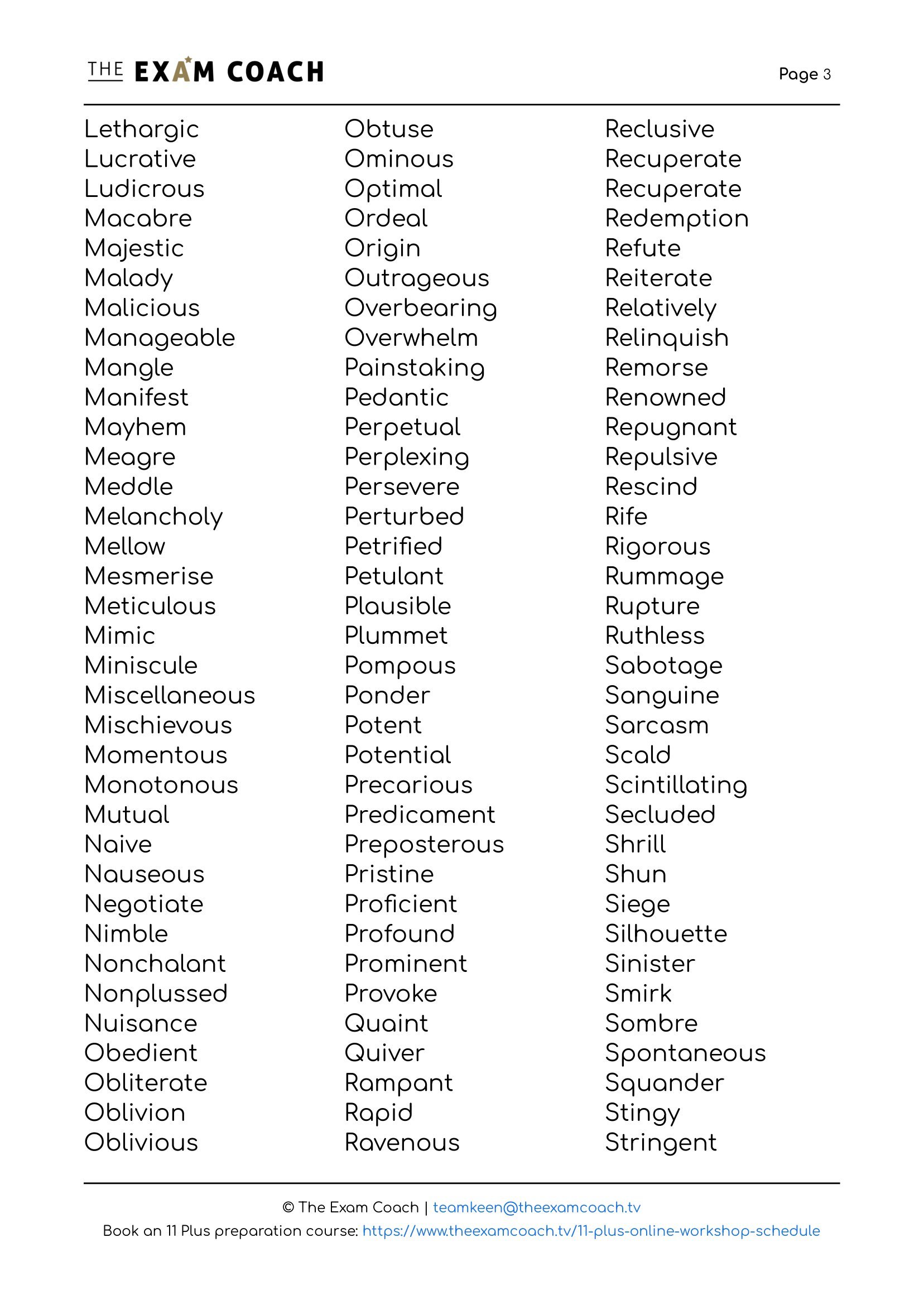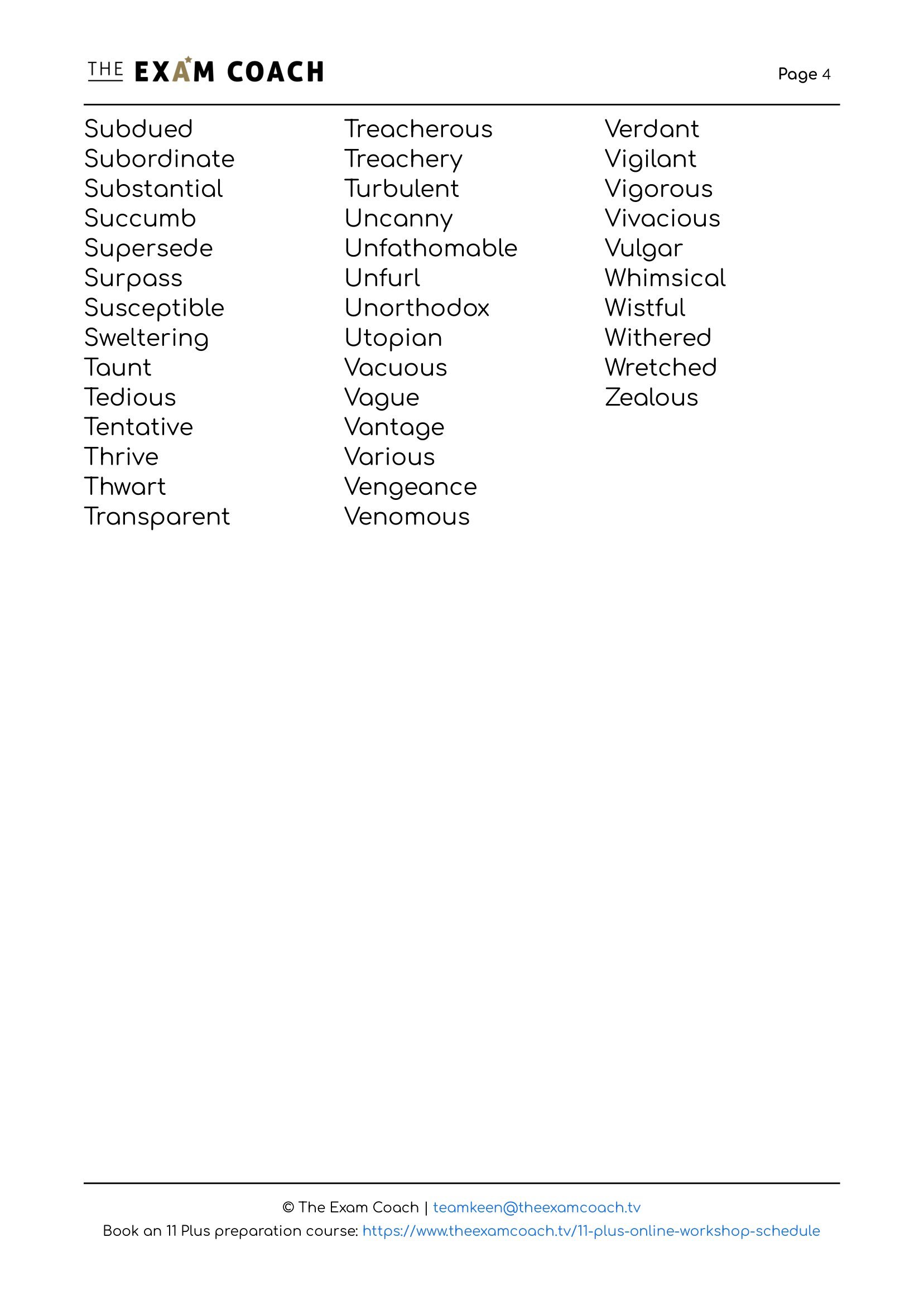Welcome to our 11 Plus guide — your helping hand to mastering the 11+ process. The purpose of this post is to help parents methodically think through everything required for 11 Plus exam success — from start to finish!
You can use the links within the contents section below for speedy navigation through our 18 points. We hope you find them useful. If so, please do leave a comment or question below.
Contents
Brief introduction to the 11 Plus
Brief Introduction To The 11 Plus
The 11 plus exam is the collective name for the selective entry exams for grammar and independent schools across the UK, taken in Year 6 (at the age of 11).
There are four core disciplines tested:
English (comprehension)
Maths
Verbal Reasoning
Non-Verbal Reasoning
The inclusion of all or some of these disciplines vary from school to school. There may also be an additional writing exam. (Creative and persuasive writing is not often tested by grammar schools as part of their 11+ exams. However, it is tested by most independent schools and the most competetive grammars.)
The 11+ exam is usually taken in the September of year 6, so if your child is in years 4 or 5 — or even if they’ve just started year 3 — now is the time to start thinking about how to prepare them most effectively.
Your involvement as a parent will greatly impact your child’s chances of success. Within this article, we’ll explain some important points you should be aware of, in addition to giving some advice based on what we’ve seen work well in the past.
We’re specialists in 11 plus preparation and we have the parent reviews to prove it!
1. Research Your Target Schools
Start by researching the schools in your area to find the best fit for your child.
Here’s a list of important factors to consider when narrowing down a list of target grammar and/or independent schools. You should use them to organise a first, second and third choice school.
Is the school a commutable distance for your child?
During secondary school, children receive more homework and often have more opportunities to do after school activities. A long commute may put constraints on your child’s ability to manage. Try to make sure they will have enough time to stay on top of all of their school commitments at each of their target schools.
How competitive is the school?
It’s wise to pick a range of schools. Some schools tend to be more oversubscribed than others. Don’t limit your ambitions, but it’s always sensible to have back up plans so your child can continue progressing at another good school regardless.
How expensive is the school?
While grammar schools are public schools and therefore free to attend, the fees of independent schools can vary greatly. Make sure you are aware of any and all costs you may face with the schools you are considering for your child.
Will your child be happy?
Here’s the thing about the ‘top schools’.... You must ask yourself first ‘is my child likely be happy at this school?’ The top schools will include many other very bright children and your child may feel significant pressure and competition which, in turn, could dent their confidence. Confidence is crucial to maintaining learning progress. Children must be unafraid of exploring and making mistakes to grow personally and intellectually. Whereas, if your child gains a place at a less competitive school they may thrive off the confidence they derive from being ‘a slightly bigger fish in a slightly smaller pond’.
Your child may also want to have a say in the forming of your target schools list. Listen to their preferences whilst also trying to guide them based on your research and what you think will suit them best.
As soon as you have chosen the schools you wish to apply for, research the entry exams. There is no standardised test for the 11+ and most schools’ exams differ slightly.
Most 11+ exams operate under the CEM or GL exam boards. However, schools in Essex tend to use CSSE and Kent, the Kent Test.
There’s a lot of information on the internet explaining the different types of exams for each school or set of schools. We’d recommend using our school guides resource in order to find out key admissions-related details — we endeavour to keep this as up-to-date as possible throughout the year. The guides also help to consolidate all relevant information in one place. We hope they save you some time and give you some clarity.
Other recommendations include talking to other parents with children at your target school as well as the teaching staff at your child’s current school. If you live relatively close-by your target schools, parents and teachers alike should be able to offer some sound advice.
2. Start Early On Core Skills
Begin preparing your child as early as possible. The earlier you start, the more time your child has to learn, revise and become accustomed to the 11 Plus exam style and content.
We recommend you focus on core skills at first:
Reading accuracy and speed.
Mental maths (addition, subtraction, multiplication and division).
Vocabulary depth and breadth.
Starting early can give your child a huge advantage over others because it takes patience and repetition to build rock-solid core maths and English skills.
We go into more detail on how you can build core skills in the ‘4. How To Build Core Skills’ section.
For more information on the benefits of starting early, click here.
3. Find the Right Learning Approach
Finding the right learning approach is also important. Here are some options:
Revision guides
Home study courses
One-on-one tuition
Group tuition
Exam Coach workshops and courses (here’s our tuition schedule) 😉
Each approach comes with its own price tag, set of benefits and drawbacks. One or two are likely to be more realistic for you than others. We’d also recommend picking at least two approaches so your child’s learning experience is kept varied and interesting.
4. How To Build Core Skills
Some short, playful testing can very easily compound into huge growth over time. This is also the most critical element in building ‘core skills’ in English and maths.
A robust foundation will mean your child will find more complex areas of the exam easier to handle when the time comes.
Here are a few practical pieces of advice you can use in your day-to-day preparations:
Reading accuracy and speed.
Practise reading accurately at first. The more accurately your child is able to understand the meaning of a sentence or question, the better positioned they will be for the 11 Plus. A great number of students lose easy marks through careless reading errors whilst reading questions or searching for answers. This may well sound like an obvious point to make, though you’d be amazed at how many students drop marks because they have read something inaccurately or misinterpreted its meaning.
Allocate 10-15 minutes a day to read aloud with your child. This could be an extract from a novel, a newspaper article or even some homework. Here are a few things you can do to help them understand the importance of accuracy:
If they skip words, pick them up on it and explain how their small omission changes the meaning of the sentence.
Ask your child to explain the meaning of sentences to you in their own words.
When reading through homework, ask your child to read the questions aloud and explain what the objective of each question is before they complete the task.
Our advice is to ‘do like the Romans did’ — train as if it’s the real thing! If you can focus on building a healthy habit for accurate reading and compound this with robust exam technique (for example, underlining the key words within the question) your child can greatly reduce their chances of making costly careless errors on exam day.
Increasing Reading Speed
An easy way to build this without putting your child under undue pressure is to encourage them to read for 15-20 minutes before bed. Set a timer which is in view. If your child has a competitive streak in them, they will naturally try to better the number of pages read the day before. Gamifying the learning experience always helps!
Mental maths
Start with quick addition and subtraction. You can do quick-fire tests in the car; encourage your child to try to add up the cost of your shopping list in their head; or have them quickly workout the amount of change you are due.
Mastery of times tables can also help a child gain valuable minutes within the exam. Whilst other children are adding numbers together to find their multiple, your child will know the answer off the top of their head. Again, this can be tested in a fun and competitive way when you’re spending time with them.
Vocabulary
Try to speak to your child using a vocabulary selection slightly above their current level.
An expansive vocabulary helps with every English discipline that can possibly be tested for within the 11 Plus (comprehension, verbal reasoning and writing). Children who tend to do well in the 11 Plus invariably have a deeper and broader vocabulary than their peers. They know the differences between words similar in meaning and they also know more words. This can be built gradually in a number of ways:
Conversation at the dinner table.
High-quality television or video content.
Listening to the radio.
Reading.
Actively researching unknown words.
Encourage your child to ask you what words mean. You might even find you learn a thing or two! When asked to define a word we usually start listing synonyms (words similar in meaning) or antonyms (words opposite in meaning). We also tend to give an example by using the word within the context of a sentence.
Once you start making this process a habit with your child you should try to encourage them to consolidate their learning by creating flashcards and post-it notes on each word. Leaving these notes around the house will help them review and gain regular exposure to them often. This is the easiest way to help expand their vocabulary.
Another way to build your child’s vocabulary is to have them listen to The Exam Coach podcast (available on iTunes, Spotify, YouTube and Amazon Music). We review a tricky piece of vocabulary every weekday morning. We define the word, use it within different contexts, list synonyms and antonyms and throw in the odd fun fact!
Technical aspects of the exam, for example, knowing the different parts or speech or algebraic rules can be acquired later on. If your child’s basics are solid, more complicated sections of the exam will be well within their reach at a later date.
5. Space Repetitions
This goes hand-in-hand with starting early. The earlier you start, the slower you can go. Your child is unlikely to understand everything the first time. You will need to review sticking points regularly. In fact, the best way to do this is using a technique called spaced repetition. It’s the scientifically proven way to store information within one’s long term memory. As your child prepares for the 11 Plus, you want to be spacing out repetitions of topics that your child finds tricky. The video above explains exactly how you could do this.
6. Use A Timetable
Make a plan or timetable and stick to it. You might think this could put your child under more pressure. However, it often does the opposite. Children are used to structure. It’s been a core part of their schooling from day 1. Everything at school is run against a timetable. Continue this level of organisation and time allocation after school for them. There’s a reason the old adage ‘routine sets you free’ has hung around. Routine is important for children, if you can make the initial effort to organise their time after school they will likely reward you in return with some outstanding results.
You could start dedicating one evening a week to 11 Plus work and then increase this as the exam approaches. Similarly, try to arrange any tuition or support at the same time each week. This way your child will know when they should be focusing on 11 Plus preparation and you can help them build some learning momentum.
They may also have school homework to do too — a timetable will help you both plan enough time to complete all of this work and revision.
7. Build Confidence
Try to be as positive as possible when discussing 11 Plus preparation with your child. Even if they’re making the same mistakes time and again or they’re struggling to overcome a topic — be calm, be positive and persist.
Demonstrate the kind of stoic determination required for exam success through your own approach. Stick by them and continue giving them the opportunity to succeed through arranging study sessions and tutorials for them. Your positivity, confidence and ‘can do’ attitude will rub off on them.
A quick tip is to always talk to your child in terms of a ‘growth mindset’. Every win or good test result is something to celebrate but also something to build upon and take to the next level. Every poor mark or test score is put down to ‘experience’. That’s all. If we learn from it we can (eventually) turn a disappointment to our advantage.
8. Work Around Your Child’s Stamina
You know your child best and working around their stamina will greatly help them to learn and memorise information for the exam. Small bursts, with plenty of breaks, are often more effective than longer lessons.
Studies show that people are most productive in smaller, uninterrupted bursts of about 25 minutes followed by a short 5 minute break, this has been termed the Pomodoro Technique. This stops the brain from becoming frazzled or distracted.
Keep things short, sharp and regular and try to arrange 11 Plus revision sessions for when your child is likely to be receptive. A good strategy is to allow your child some relaxation and downtime after school. Then, after they’ve had time to decompress after the school day they may well be tempted by a quick test or review. Again, try to gamify your child’s learning experience as far as possible so it doesn’t always feel like work.
9. Understand ‘Sticking Points’ Within Each Discipline
Within each of the four main disciplines there are some typical ‘sticking points’. These are areas or topics that students often find challenging. They’re also where the spots for grammar and independent schools tend to be decided.
English Comprehension
Close reading of questions and texts.
Inference and deduction skills.
Deep knowledge of the parts of speech.
Maths
Geometry.
Fractions.
Ratios.
Algebra.
Verbal Reasoning
Breadth and depth of vocabulary.
Comparative skills.
Methodical approach.
11+ Non-Verbal Reasoning
Logical thought processes.
Deduction skills.
Additional discipline…
Writing
Structure and organisation.
Use of appropriate ‘writer’s tools’. For example, metaphor, alliteration, personification and onomatopoeia.
Spelling, punctuation and grammar.
Answering the question fully.
Deliberately targeting the mark scheme.
At The Exam Coach, we specialise in the following 11+ disciplines:
11+ Comprehension
11+ Verbal Reasoning
11+ Creative Writing
11+ Persuasive Writing
If your child is struggling to understand the sticking points mentioned above, let us lend you a hand. Our expert tutors work with hundreds of students a month, using tried and tested techniques to ensure your child’s success.
10. Revise Like The Best
Effective revision techniques not only help your child progress with their learning, but they can also have a tremendous residual impact on their confidence. If your child can easily identify and feel their own progress then they have a fantastic chance of developing their own self-motivation. This is magic because it makes your job a thousand times easier. We all know the feeling of wanting to do something because we want to experience a similar feeling of achievement and success many times over. It’s a healthy addiction and it applies to 11 Plus revision too. Give your child the opportunity to have this happen to them.
Two Important Principles For Effective 11+ Revision
To revise effectively, two principles you should always keep in mind are:
Active recall (regular testing)
Spaced repetition (repeated testing)
The most extensive study on ‘how we learn best’ was performed by Professor John Dunlosky (here’s the paper). In short, his study finds encouraging students to recall information without assistance is the most effective revision method. This is as opposed to asking a student to read through information, highlight it or even take extensive notes on the information. Students should review information promptly and then receive a test on that information. The test is the critical piece. After all, this process replicates the exact same conditions which will be present during the exam.
Two Important Techniques For Effective 11+ Revision
Mind maps and flashcards are two of our recommended methods for testing student knowledge.
A mind map is a visual representation of information, allowing a student to link ideas and words together to form a ‘map’. It works well for 11+ creative and persuasive writing revision or visually expressing synonyms and antonyms in relation to one word. Ask your child to plan an essay or write out synonyms and antonyms in this way.
Flash cards are effective for testing as a question can be written on one side and the answer on the other.
Both of these techniques can be used in line with the principles of active recall and spaced repetition.
11. Use Practice Papers At Regular Intervals
We’d recommend integrating practice papers into your child’s revision programme at regular intervals. It’s important to do this from the early stages as your child will benefit from having a clear idea of how they can apply what they are learning within an exam situation.
As the exam approaches, we’d recommend less conceptual learning and revision and more practice papers. It’s unlikely your child will be able to internalise a new vocabulary list a week or two before the exam. The best thing to do instead is to ensure they are as familiar with the exam as possible through regular practice papers.
Free 11 plus practice papers and answers can be found here. Search for your chosen school or county using the search bar at the bottom of the page.
How to practise using practice papers
Start off by letting your child complete the papers with no time limit; let them work through it at their own pace, even using their notes to help. When your child is more confident, add a timer, remove the notes and stop them when the time is up.
12. Lifestyle 11 Plus Revision
It might sound a bit much to be making 11 Plus revision part of your ‘lifestyle’. That said, making a few adjustments to your daily routines and typical topics of conversation with your child can compound to make a HUGE difference on exam day.
Many top educationalists point to factors which are very difficult to measure accurately when seeking to explain why some students are at a higher academic level than their peers. These factors are ‘lifestyle factors’. For example:
The number of quality conversations the child is having per day, what these conversations consist of and the thought processes they involve.
The home environment and the amount of access the child has to high-quality, intellectually stimulating information.
Try to make time in your schedule to have some quality conversations with your child. If you’re short on time you could always try to capture their interest with a good tv documentary or video series.
Encourage your child to place their flashcards, notes, posters and post-it notes around the house where they are easily visible. Yes, the home decor might take a hit — but this is all short term! The bonus is that this will allow your child to review important content and test themselves often. Family members can get involved too!
13. Use Variable Rate Rewards
In the 1950s, a psychologist named B.F. Skinner determined a variable schedule of rewards as the best motivator for increased participation and desire to achieve.
His experiment involved mice pressing a lever: at times they’d receive a small treat, other times a large treat, and, at other times, nothing at all. The schedule of rewards when the mice pressed the lever was random. Unlike the control group, where mice received the same sized treat every time they pressed the lever, the mice that received variable rewards pressed the lever more compulsively and regularly.
This same principle can be applied to how and when you reward your child. Keep them guessing and they’ll continue trying to search for a reward. Here’s a good example of this already at play...
If you’ve ever tried talking to your child whilst they were playing their newest, most engaging video game, you might have seen variable rate rewards take their effect first-hand.
In response to your question or conversation-starter you most likely would have received a mumbled semi-conscious response. Your child will say anything to get rid of the distraction whilst their brain is occupied searching for the new reward, level-up or challenge within the game. Video game creators are experts at creating these addictive feedback loops that sustain maximum engagement and concentration. So much so, your child can become completely absorbed in the game and resist any external distraction.
Knowledge of how this works can help parents create their own productive variable reward feedback loops to engage their child in 11 Plus preparation.
The takeaway is to reward your child sporadically. Vary the size of the reward too. At times the reward could be something tangible, at others it could be a heartfelt compliment. In this way, not only will your child likely work harder to receive a reward but they may also become so embroiled in the process that they forget about the size of the reward completely — much like the mice in Skinner’s experiment!
14. Develop An Exam Technique
Revision and test practice are the bread and butter of exam preparation.
Exam technique is the sandwich topping which can help your child gain or save another few marks. It is also so often the difference that makes the difference between students who attain places and those who don’t.
Encourage your child to develop ‘their way’ of tackling each of the papers they know they will be sitting for their 11 Plus.
This can include:
The order they complete the paper.
How they read questions to ensure they understand them fully.
The steps they take to answer questions and ensure careless errors are eradicated. For example, underlining and highlighting key words. Reading the question a set number of times.
The notes and jottings they make on the exam paper to ensure they deliver answers promptly and accurately.
How much time they leave to check through their answers at the end.
What they do within the exam to remain focussed and working smoothly.
All of these are important and you should discuss a ‘game plan’ with your child. Help them to formulate ‘their way’ of doing each exam by reviewing and discussing past papers with them. Careless errors are one of parent’s biggest bugbears as the 11 Plus exam day draws nearer. Solid exam technique is the antidote to this.
At The Exam Coach, we have developed our own set of exam techniques students can use and follow for each type of exam. It is this, along with practise of the essential and most challenging skills and concepts tested for, which forms the backbone of our 11 Plus Exam Preparation Courses.
15. Raise The Bar
As exam day draws nearer it’s important to continue raising the bar. Crucial marks can won be and lost on small details. For instance, you should try to encourage your child to be as accurate as possible with their spelling, punctuation and grammar. If your 11 Plus exam involves a creative writing paper this will be used to decide the final available places.
16. Pre-exam NUTRITION
Up to 60% of the human body contains water. The brain consists of 73% water. Ensure your child is hydrated and has a healthy nutritious breakfast on the morning of exam day. Try to avoid sugars. Instead, stick to slow digesting carbohydrates, healthy fats and protein.
17. Before the exam: Think Of The Basics
Keep things simple on exam day.
We wouldn’t recommend any last minute quizzes or testing on niche parts of the syllabus. This work has already been done.
The important thing is to have your child remember the basics. Most critically, their exam technique. On exam day the occasion and nerves can cause your child to forget the basics of completing an exam effectively. For example:
Reading instructions and questions carefully.
Remembering to deliver to the mark scheme.
Keeping an eye on the time.
If your child can go into the exam with their basic exam technique front of mind all of the more complicated revision they’ve worked so hard on will fall into place.
You should review the basics with them before the exam. The three bullet points above could be the structure you guide them through. Keeping things clear and simple before an exam will help your child stay relaxed, calm and focussed — this is the ideal state for a successful exam performance.
Finally, before getting out the door, ensure they have everything they need to take to the exam with them.
18. inspire Positivity and focus
Finally, and most importantly, encourage and support them.
Psych them up for the exam, remind them that they can do it and that you are their biggest supporter. Position the exam as something to look forward to. It’s an opportunity to perform and deliver. If your child can go into the exam looking forward to seizing every mark they can, as opposed to dreading a certain topic or question, this can really help them deliver their best.
Tell your child that you believe in them and you are proud of them no matter what. All they need to do is go into the exam hall and give it their best shot. Leave everything in there and come out with your head held high.
If you’re currently preparing for the 11 Plus, you can view our 11+ workshop and course schedule here.
We hope your child can join us soon for a course in:
11+ Comprehension
11+ Verbal Reasoning
11+ Creative Writing
11+ Persuasive Writing
Our 5-day courses:
Consist of five 90-minute sessions.
Can be taken by students up to 12 months before their 11+ exams.
Teach students the full set of skills and techniques they will need.
Worksheets, homework and class notes are provided. Homework marking consists of written marking accompanied by individualised actionable feedback delivered via a spoken audio message.








